Send you greeting with joyous heart;
Does give me pleasure to embrace you
And the heart of my desires in this;
To speak to you, more tolerable.
Vulnerable which love!
At the grief was tormented, And when you entirely exhausted, a
That I may impart to us the
And to rouse us from death!
O death in which we as greedy girl,
How merciless man, how bitter,
What his way through the and entered the
In the life of the world which is alive,
Thee, that bites the, most sweet to the heart of!
Because of the death, that thou hast taken,
When grown weary for me,
Of my heart, the heart of the levy, and
The whole in thee bring us the affection;
That is, what I pray that the greatest weight.
Through the marrow of the of my heart,
Of a sinner and,
Let your love be transferred,
In which a power, is wounded,
Whoever you are embraced.
They are whole, healthy, warm, cleansed,
Out of you, who live sumptuously It has penetrated
The whole of man and washed,
In thee have I, while the spear is bent. Broaden the spirit, to open,
Wonderfully fragrant with a rose, as it were;
You on my heart, reconcile,
Anoint it, and it compunction;
He that loves thee, does he suffer any!
What he loves, he does not know in very deed,
Nor consider itself to be valid,
There is no manner gives to love, and
The death of many things he wished to die,
Of love for each one was defeated.
Live! You may live! I cry out to thee,
Sweet to the heart, for I love thee;
To bow at my heart,
However that may be able to apply the
Devoted to you in his breast.
In the love of your live.
Do not let him slumber in the torpor;
Let him pray To Thee, to Thee If she cries,
You may rejoice, let him accept of thee
While enjoying the Thee at all times.
The smell of which wonderfully fragrant;
You deign to broaden the spirit,
Make my heart to pant,
Smacks of an odor of sweet. To you, you will draw my heart
And I do not despise a, reverently, the accused,
That now he be to thee near to being a
Put in your bosom, within the,
However that may be in thee to find it.
Rest Here, here longer;
See, now he is moved after thee,
You with flaming wants to feel, to
Clearly wants to go in,
That well of thee and feel, and
You now of thy sweetness,
I am I give to you me to the whole,
All you from entering in the
I want to, do not, enemies to
Thy heart shall me to welcome.
(Hymn written by Saint Hermann Joseph to the Sacred Heart)
Today, April 7, we celebrate the feast of Saint Hermann Joseph (also known as “Little Herman,” 1150-1241), mystic, visionary, monk, and one of the most beloved of Medieval saints. Throughout his life, from an early age, Saint Hermann Joseph was especially devoted to Our Blessed Mother and the Holy Family, spending his days in prayer and contemplation of the Sacred Heart. In his devotion, he was rewarded with mystical visions and ecstasies, during which Our Blessed Mother spoke with him and provided for him, and the Christ child played with him. Saint Hermann devoted his life to the Lord, becoming a monk, and leaving behind numerous writings, poems, and hymns of praise.
Little Hermann was born in Cologne, Germany. As a child he demonstrated great piety and devotion, picturing himself as a loyal and brave knight, and the Virgin Mary as his lady fair. He demonstrated great strength and presence, as was adept at both athletic and mechanical tasks. Always calm, dignified, and reserved—even as a child—he was a sensitive and sensibly boy whose eyes “gave off little sparks” according to those who knew him. He demonstrated consistent discipline in weaning himself from the temptations of the world, instead focusing on spiritual pursuits.
Hermann was equally adept at his studies, cultivating his mind, learning, and curiosity through the reading of literature—especially the ancient writers of the Church. He enacted great austerities and penance upon himself, expecting near perfection in his bodily life, but was forgiving, courteous, and kind to all he encountered. He remained, throughout his childhood, devoted to Our Lady, carrying her with him everywhere in his heart. Hermann could be found frequently absorbed in meditation before the image of the Blessed Virgin Mary. He spoke to both her and her precious Son spontaneously, offering poetry and praise. Even as a child, Hermann would enter into rapturous ecstasy while speaking to Mary.
Hermann’s parent was quite poor in material goods, but rich in devotion and spirit. They taught their son to confide in Jesus and Mary, and with childish simplicity, he would visit the local church and tell Them all of his wishes. Living in Germany, it was frequently cold, and he would walk barefoot to the church to pray before the statue of Mary. On one such occasion, Our Blessed Mother spoke to Hermann through her statue:
“Hermann,” said Our Lady, “why do you go barefoot when it is so cold?”
“Because, my Mother, I have no shoes, for my parents are poor,” he replied.
“Go to that stone,” said Mary, “and you will find all the money you need for shoes.” Hermann went to where she directed him and found the price of his shoes as Our Lady had told him, and returned to thank her. “Whenever you are in need of anything,” Our Lady told him, “all you have to do is to go to that stone. But you must always go with full confidence.” Hermann returned to the stone, only in extreme need, and it never failed him.
The next day Herman stopped at church to thank Our Lady for his new shoes, and of course, he wanted to show them to Our Blessed Mother and the Child Jesus. He also wished to light a candle in gratitude, or bring flowers, but being too poor, had neither to give. Instead, he offered Our Blessed Mother the red apple his mother had given him for lunch. Upon reaching the statue, he realized that it was too high for him to reach, given that he was still a child. Standing on his tip-toes, he reached up toward the image of Mary, and said “Here, Blessed Mother.” Miraculously, the statue’s arm and hand reached down to receive the gift, and thanked him. Those who later visited the Church saw the statue reaching down and holding an apple. To this day, the devout leave fresh apples at the foot of this statue in remembrance of this event.
On another occasion, Hermann arrived at the church and saw a vision of the Queen of Heaven in great splendor in the choir. At her side were two children, Saint John the Baptist and the Christ Child playing together. As Herman stood contemplating the scene, the Virgin called to him. He swiftly climbed the steps, but the grilled gate to the choir was closed and locked.
“I cannot reach you,” he said to Mary, “the grill is locked and there is no ladder for me to climb over it.”
The Holy Virgin then directed him where to put his hands and feet in order to climb over the grill. Doing this, he entered the choir and she told him to join the Christ Child and Saint John in play, which he joyfully did.
At the age of 12, Hermann gave up the world, and entered the Premonsratensian monastery at Steinfeld, Germany. Given his young age, the monastery authorities decided that Hermann should complete his studies at the order's school in Friesland prior to admittance. This he did, and upon completion, returned to Steinfeld and was given the name Hermann Joseph, due to his love of the Holy Family. Of course, he protested this name, citing his inadequacies as compared to the earthly father of Jesus. But Our Lady took a fancy to the name, and in a vision put upon his finger a wedding ring to confirm that he was her spiritual spouse. On the basis of this vision, Herman added “Joseph” to his other Christian name.
Initially, Saint Hermann was assigned the most menial duties of the monastic community, such as serving at table. He labored tirelessly, without complaint, taking joy in the service of his brothers. However, as a mystic he would have preferred to be allowed to spend all his time in prayer. Our Lady settled his dilemma in a vision. She told him that nothing pleased God more than seeing a person serving his own brothers and sisters in charity.
Eventually, Hermann was assigned to the duty of sacristan, allowing him to express his piety and devotion through art. He was further assigned to minister to the Cistercian nuns at a nearby convent, a duty he continued to fondly perform until he died.
Hermann’s ascetic practices, which had begun in childhood, continued unabated. He subjected himself to mortifications which eventually had profound physical effect on both his muscles and nerves. Hermann slept on a hard couch, allowing himself only a few hours of sleep per night. Bread and water were his only source of nourishment, and he refused to travel in any manner besides on foot. When he became older, the symptoms that developed were to be aggravated: intestinal troubles, nausea, pains that traveled all over his body, fainting spells, and extreme fatigue that engendered light psychasthenic manifestations: an unreasonable fear of forgetting a particle of the Host, or a drop of the Precious Blood.
Despite these physical pains and struggles, which he offered up the Jesus and Our Blessed Mother, Hermann maintained a spiritual balance without interruption throughout his life. His daily life was one of continuous penance, and he suffered strong temptations, which he viewed as gifts from Our Blessed Mother to purify him and remove his sinfulness. He was afflicted by incessant headaches that only ceased when he approached the altar to celebrate Mass. Their violence used to increase with the approach of Feast Days. In a play on words, he used to say: Festa sunt mihi infesta ("the Feast Days are devastating for me").
Saint Hermann Joseph underwent a final ordeal prior to his death, the likes of which he had never previously experienced. Spiders and flies seemed to invade his cell, crawling upon him and terrifying him. The presence of a priest dispelled the nightmare, and Hermann Joseph died in peace. In accordance with his wishes, he was buried in the Cistercian convent at Hoven, where he had ministered to the sisters. His body was later exhumed and returned to Steinfeld, during which time it was found to be perfectly incorrupt.
The life of Saint Hermann Joseph is one of devotion, suffering, and triumphant mastery over sin through reliance on Our Blessed Mother and the Sacred Heart of Jesus. Saint Hermann recognized his own weakness, and his need of assistance, and turned in faith to the Holy Family. His devotion and confidence in the Lord were never disappointed, and through this devotion, he was able to serve those en encountered with the light and joy of Christ. Today, we pray for that same devotion and confidence, that we might reflect the love of God to those we encounter in our daily lives.
Year 2: Day 97 of 365
Prayer Intentions: Devotion and Confidence
Requested Intentions: Healing of a daughter with congenital heart disease (F); Healing and an end to suffering (J); For the children (M); For a son fighting a rare immune system disease (R); Freedom from imprisonment (J); Employment and end to depression (H); Successful employment (A); Health for a soon to be delivered baby (T); Financial security (L); Healing of tooth pain (A); Health of expectant mother and child (R); Purification of the souls in Purgatory (A); Guidance in studies (J); Healing and security for a displaced family (C); Healing of high blood pressure; Recovery of brother following surgery (A); For a sister in trouble, that she may make better decisions in the light of Christ (M); Health of expectant mother and child (R); Attainment of funds for surgery (J); Freedom from financial difficulties (E); For employment and college acceptance (E); Recovery and healing of a friend (C); For successful outcome to surgery (C); Healing for brother (M); Successful employment (C); For the victims of the Japanese tsunami/earthquake (J); Healing (E); For a son struggling with depression (B); Successful conception (M); Freedom from social anxiety; confidence in the Lord (J); Improved success in employment and studies (D); Freedom from illness (T); For a wife’s employment (E); Healing of a husband’s knee (M); Freedom from sickness (R); Healing (C); Restoration of marriage (F); Freedom from medical difficulties, employment, successful relationship (D); Healing of a father following stroke (S).









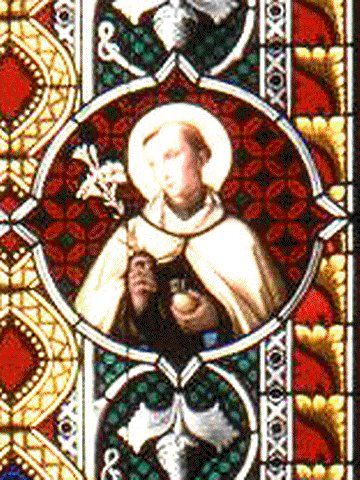

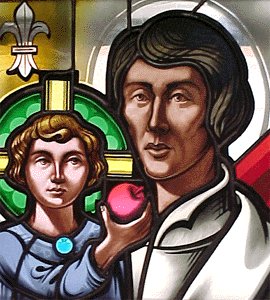
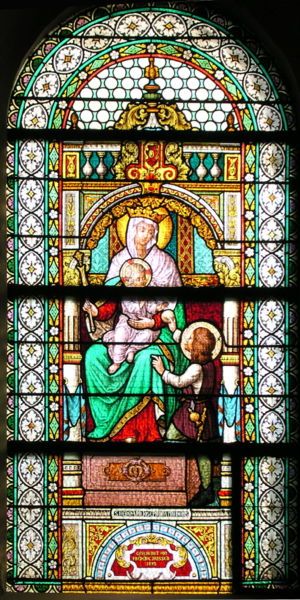

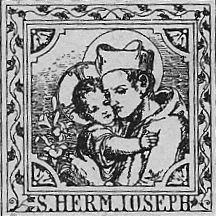
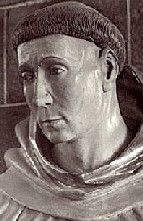
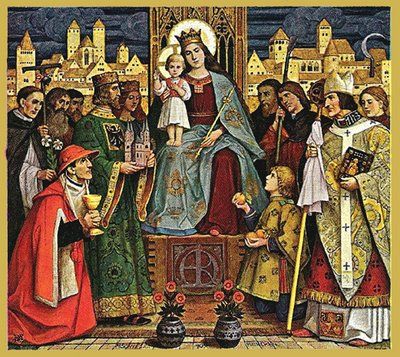
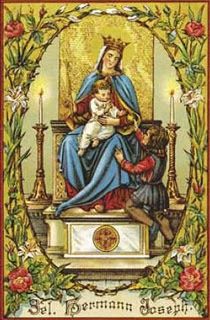
0 comments:
Post a Comment
Thanks for leaving a comment. If you wish to submit a prayer request, however, please do so above, using the "Contact" tab.